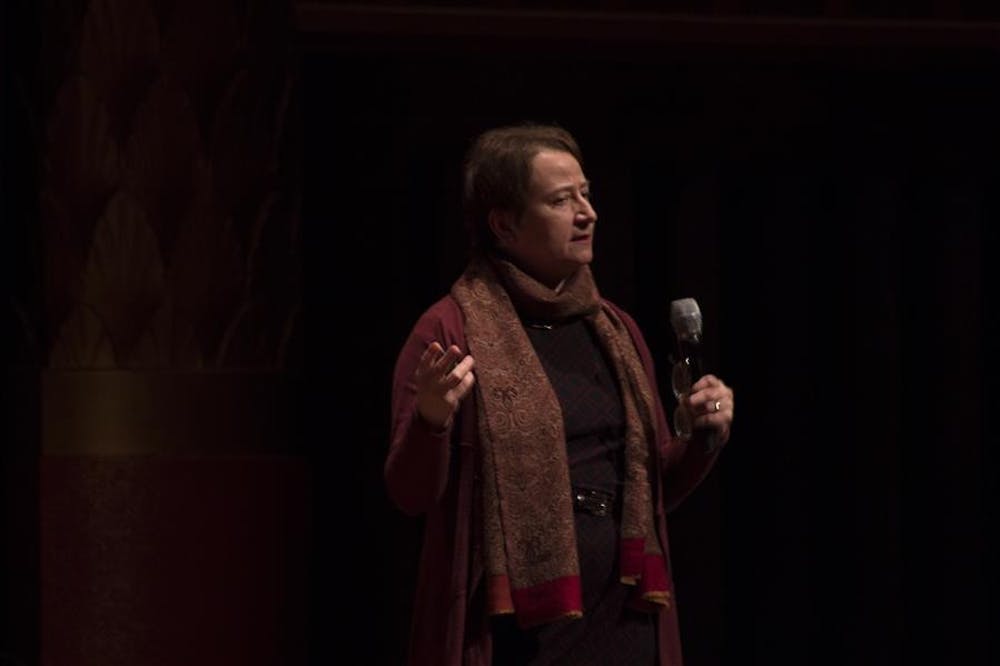A lone undergraduate, a handful of graduate students and faculty and staff showed up to the town hall meeting Tuesday to voice their concerns on the strategic plan face-to-face with the provost.
The meeting took place in the middle of the public comment period of the draft and was in the IU Auditorium.
Of the roughly 50,000 people either enrolled in or employed by IU, only 80 have commented on the online draft, Robel said.
Their comments ranged from complaints about salads to broader questions on the plan.
The plan isn’t one for addressing specific issues, but broad goals for the campus, Robel said.
“It’s not a strategic plan for the College of Arts and Sciences,” she said. “It’s not a strategic plan for the Maurer School of Law. It’s not a strategic plan for the School of Informatics. It’s a plan for the campus.”
The provost went through the Strategic Plan by the sections, briefly describing each committee’s intentions and then opening the room up to questions — and there were many.
An academic adviser for undergraduate students expressed his concern at IU’s lack of explanation of the value a liberal arts education can have and the absence of resources in the advising department.
“I think the University has frankly failed to explain this from the get go,” he said.
He earned a smattering of applause when he emphasized that IU wasn’t a vocational college, but a liberal arts college.
“We have to be absolutely firm in being able to explain and to justify and to extol the importance of a Liberal Arts education degree,” Robel said. “We have to, because it’s true.”
She said, in the last year, the campus has put money into the technological infrastructure of advising that will help students and advisers make the most use of their time.
Robel said there haven’t been broad changes on the academic side yet.
A staff member in the School of Public Health asked how staff could stay involved with the plan past the public comment period.
“As we move into the next several weeks, and I hear more from staff and faculty members of all kinds, there will be some changes,” Robel said. “And those implementation steps will be very transparent and we will absolutely need you.”
Maria Bucur-Deckard is associate dean for international programs and part of the “international initiatives: programs and facilities” sub-committee of the strategic plan.
She asked Robel, in light of the idea of building new programs of an experiential nature, like overseas studies programs, if there was a discussion about how Responsibility Centered Management units might be incentivized and held accountable to allocate more funds for overseas opportunities.
“I think if we knew where we were, and we knew where we wanted to be, we would have a compelling set of programs to put in front of potential donors,” Robel said. “I think we can get a long way by figuring out where we want to go, and which of those ideas are really compelling for external support.”
Master’s student Niki Messmore asked Robel how student support services fit into the undergraduate life section of the Strategic Plan.
“That is a place where the campus has been reallocating towards additional staff,” Robel said.
She said a new assistant dean for gender affairs has been hired to focus on that area.
Although Messmore said she probably has follow-up questions on supporting social needs of underrepresented minorities, Messmore said she left the meeting satisfied.
“I felt like my questions got answered,” she said.
The town hall meeting was meant to run until 2 p.m., but Robel cut questions off at 1:30 p.m.
The public comment period of the Strategic Plan ends March 19.
Provost addresses critiques at Town Hall

Get stories like this in your inbox
Subscribe



